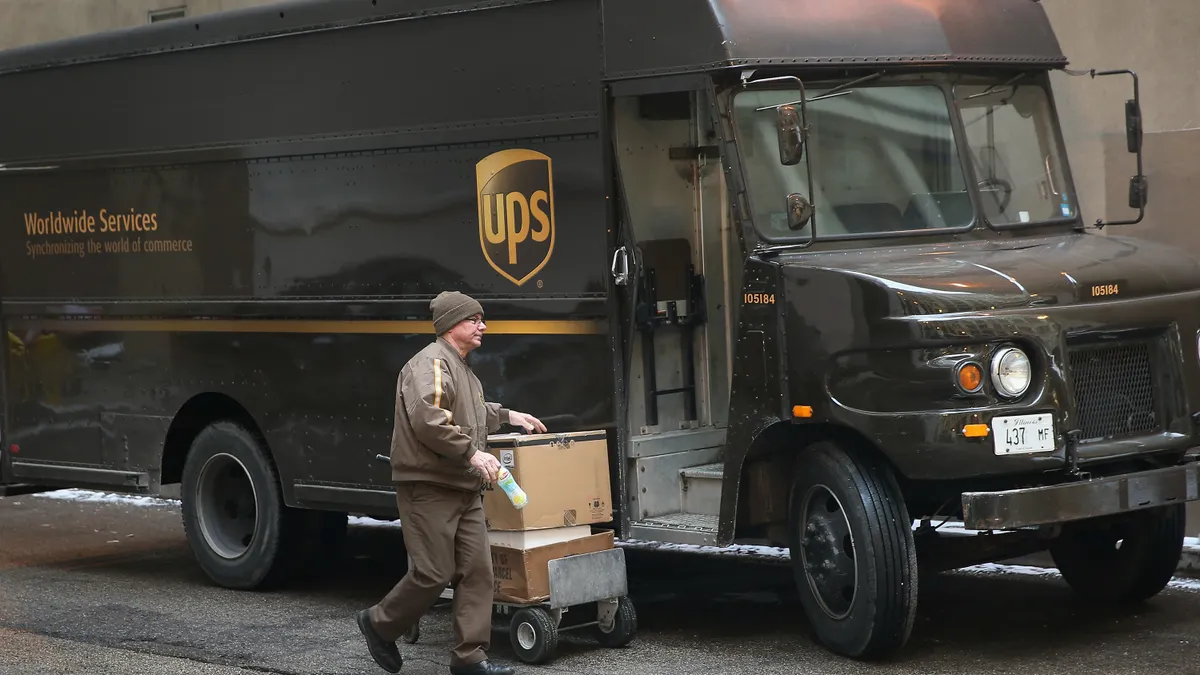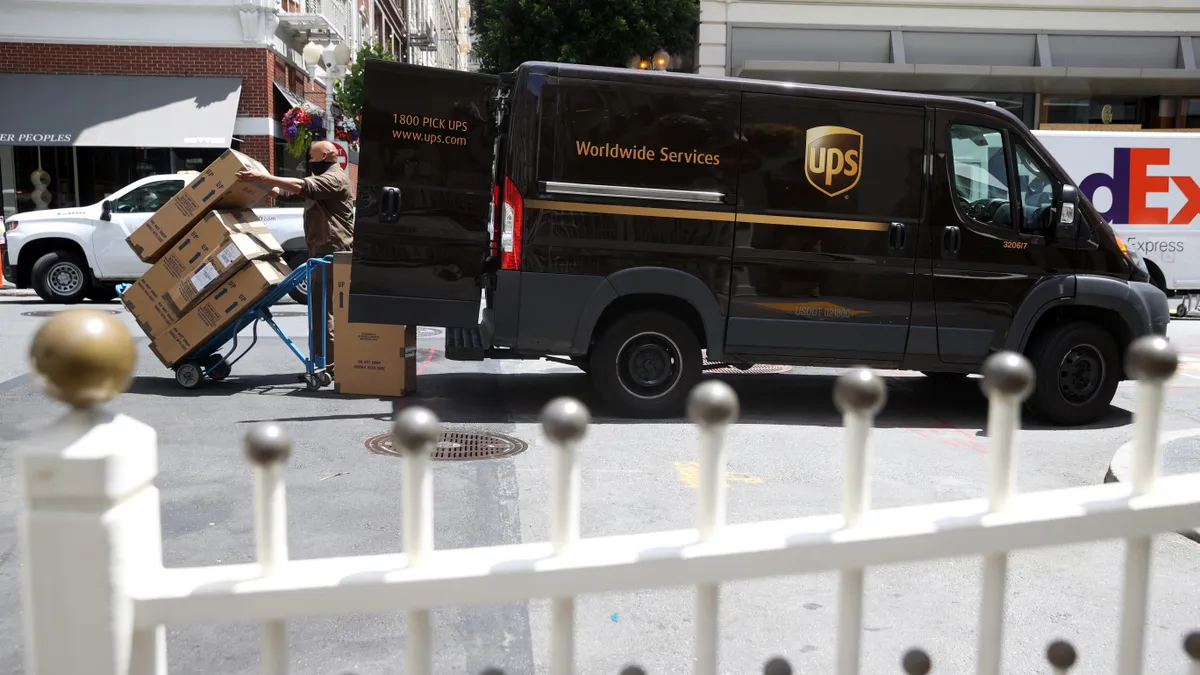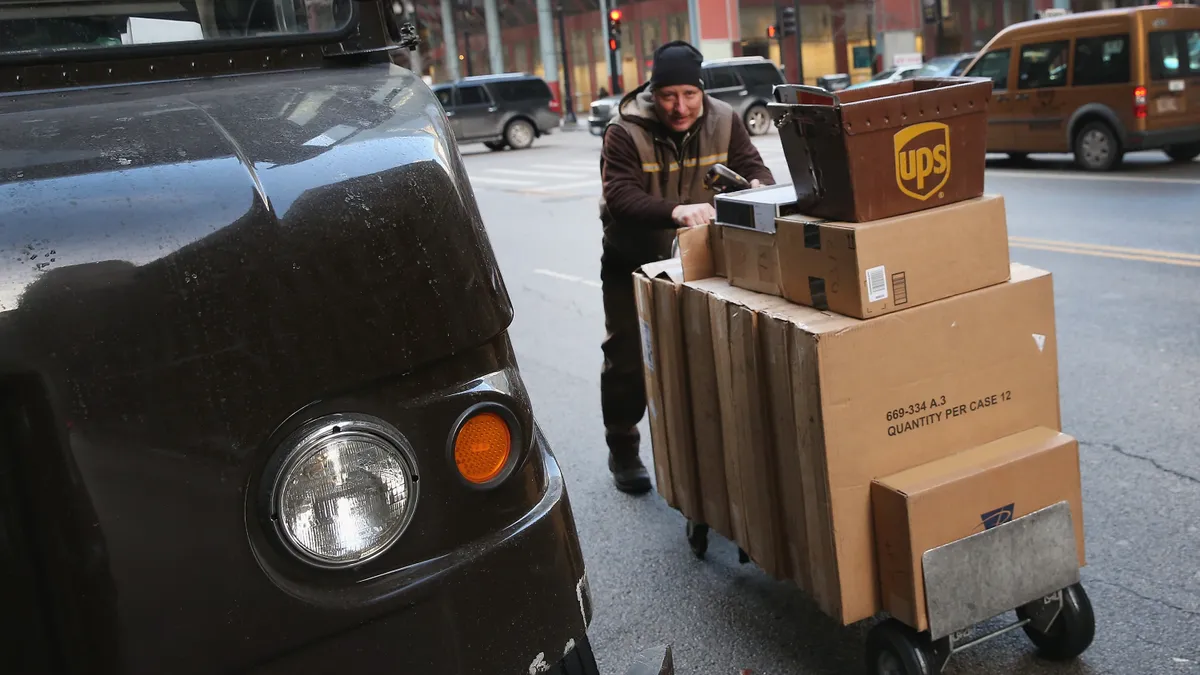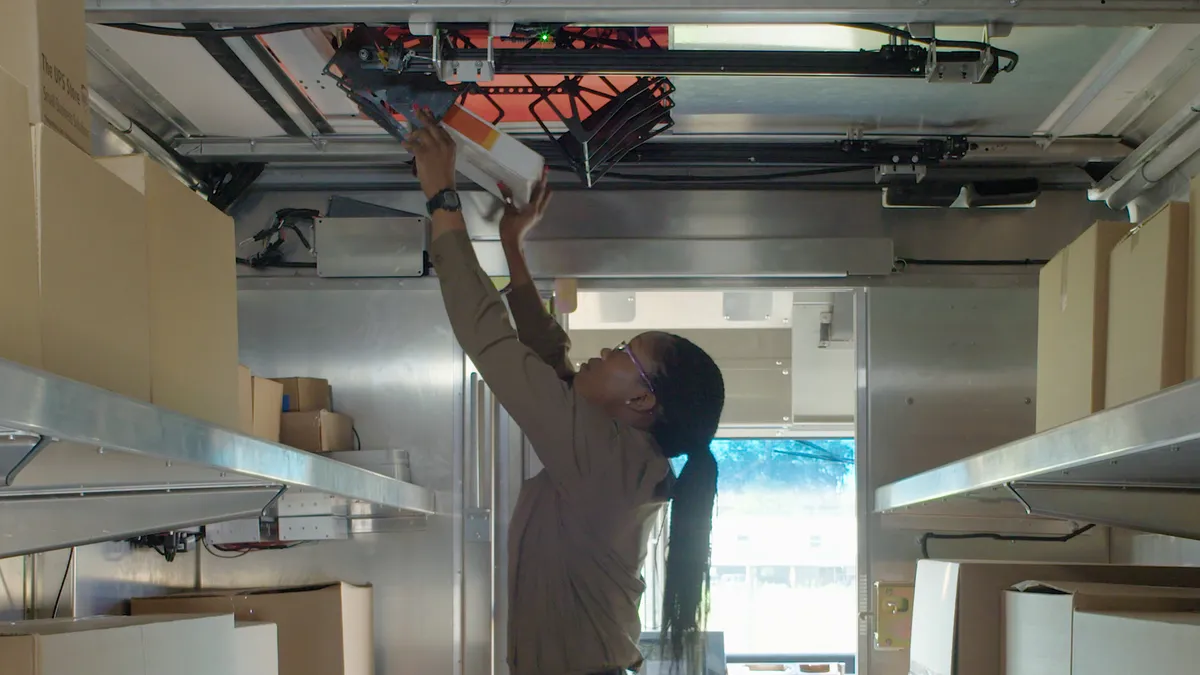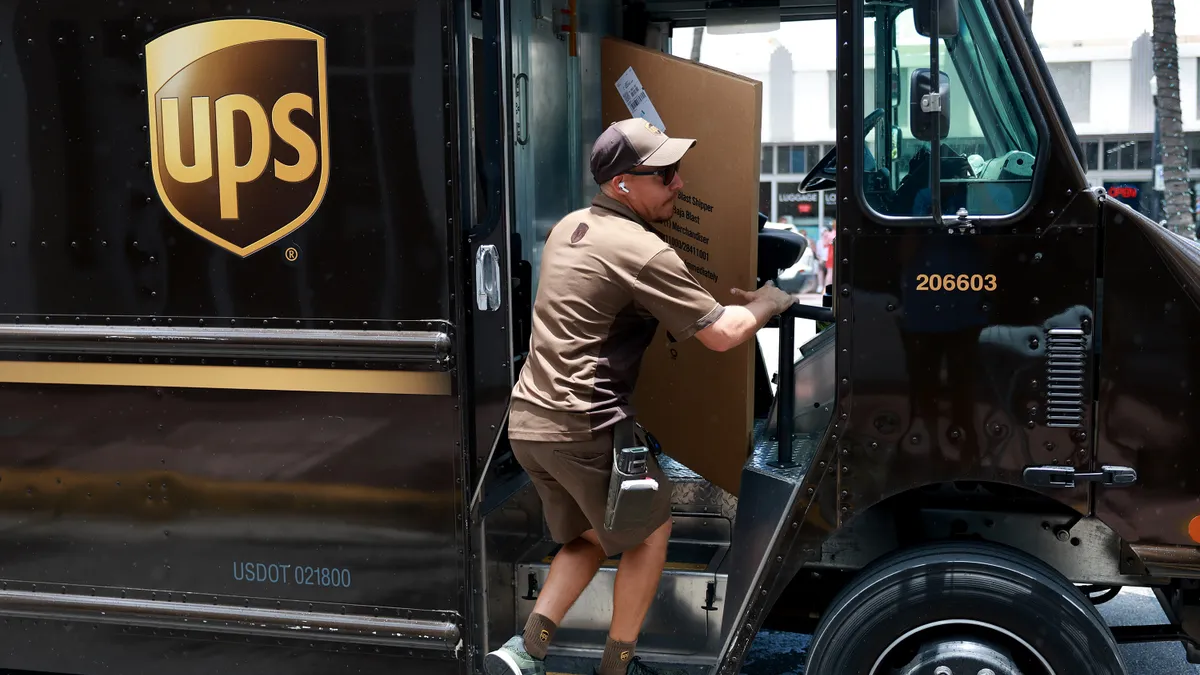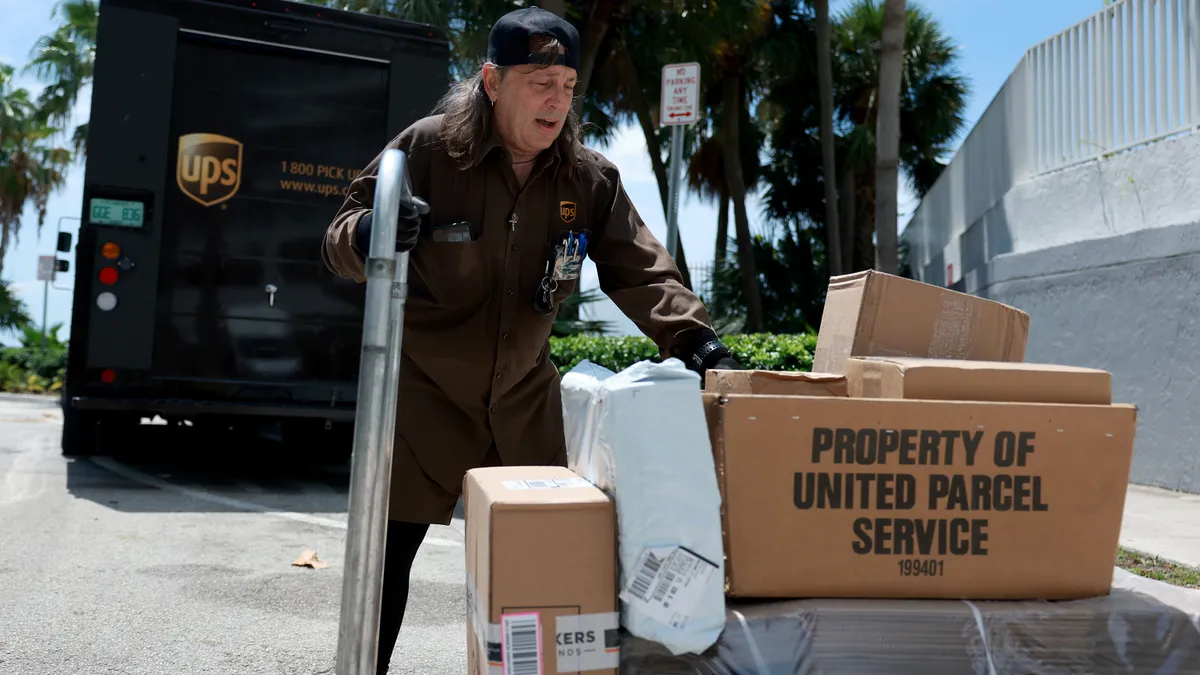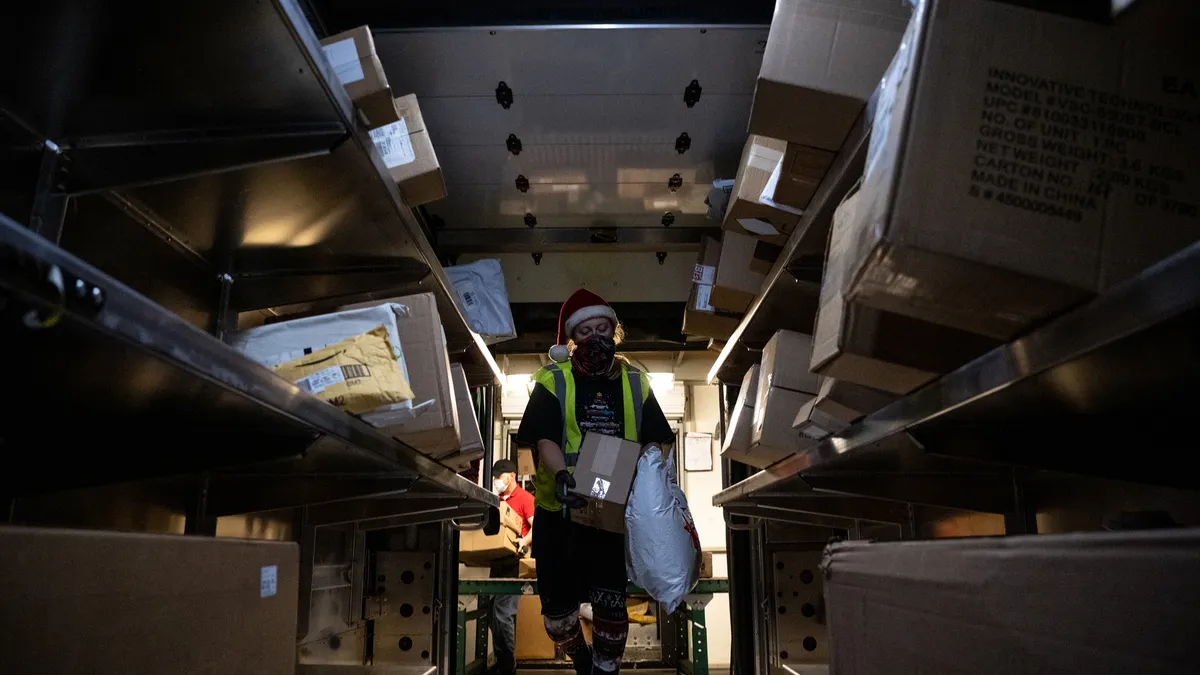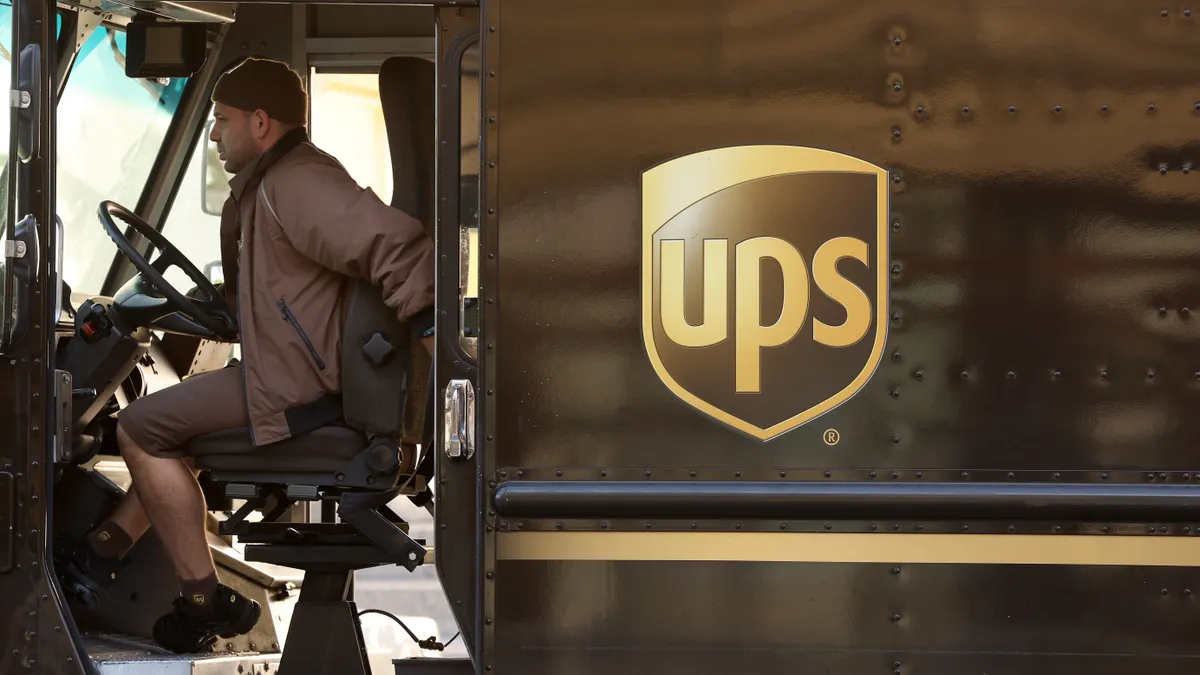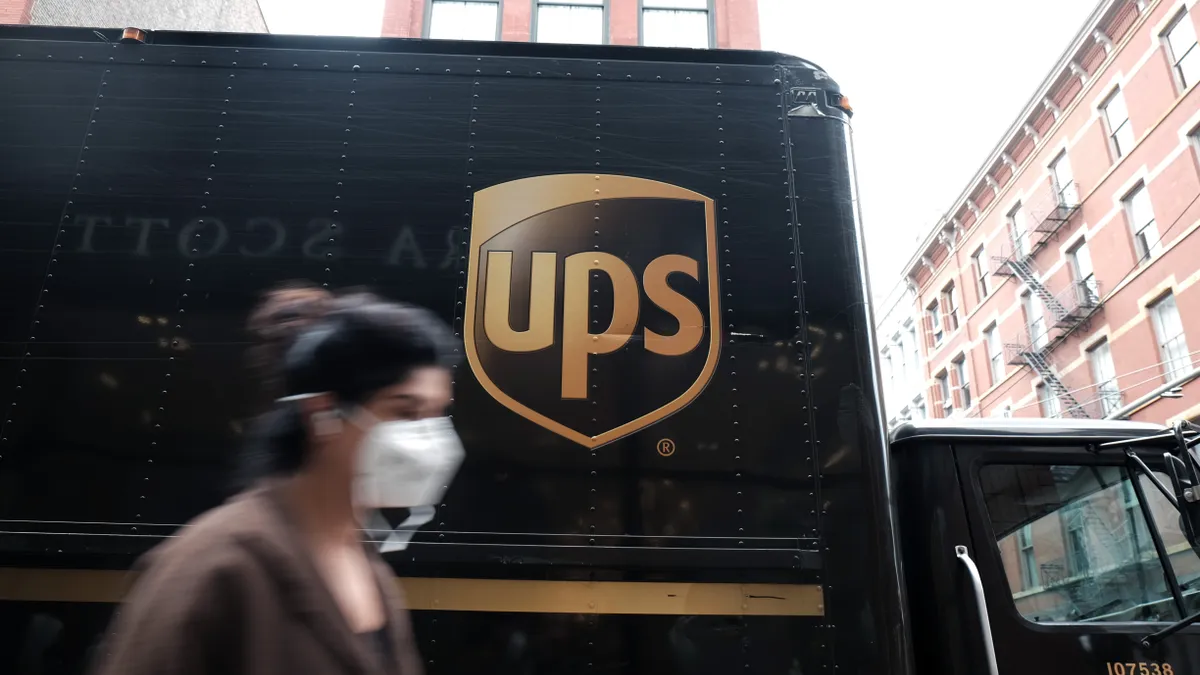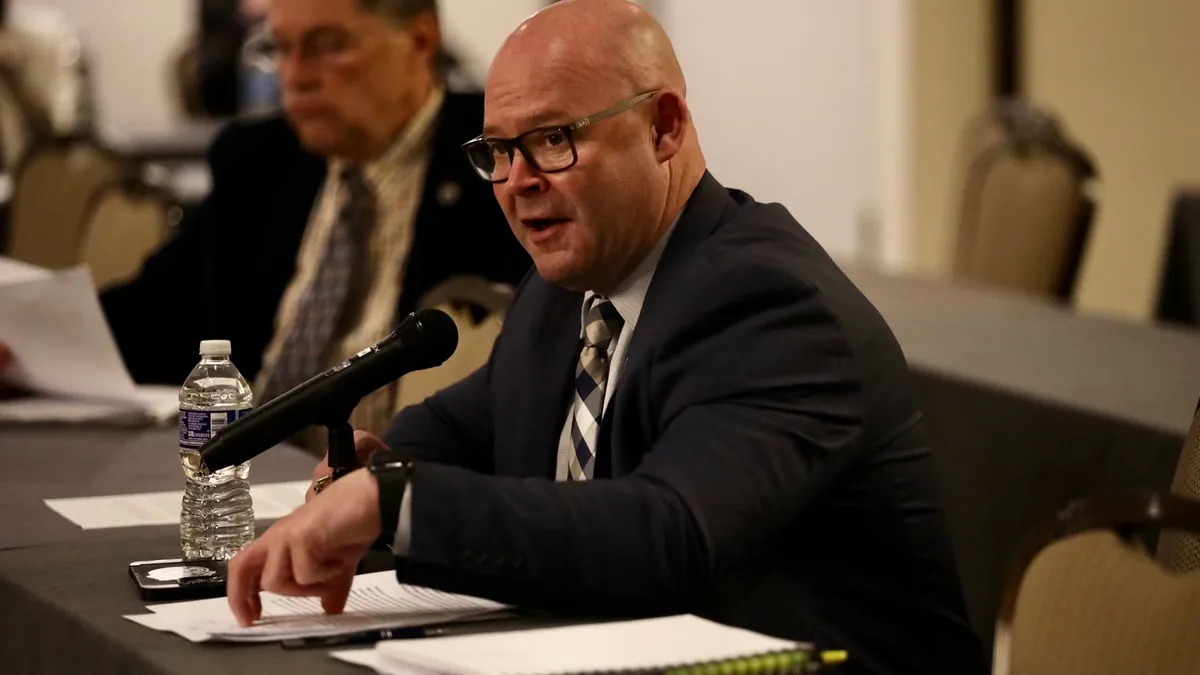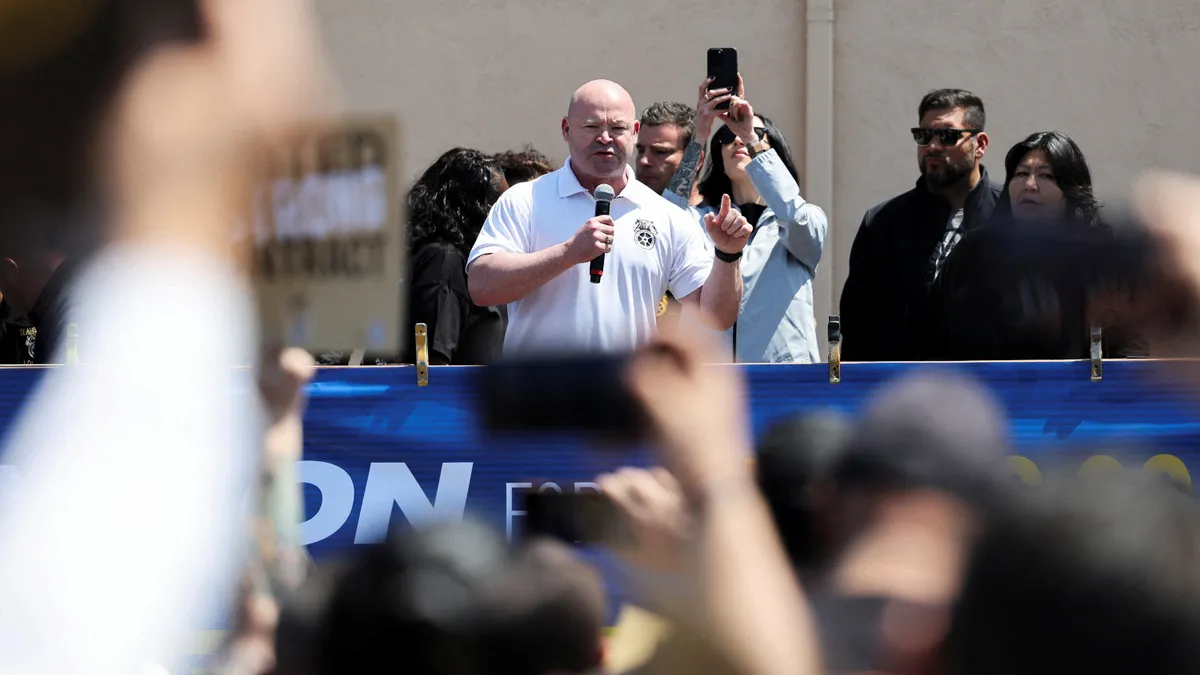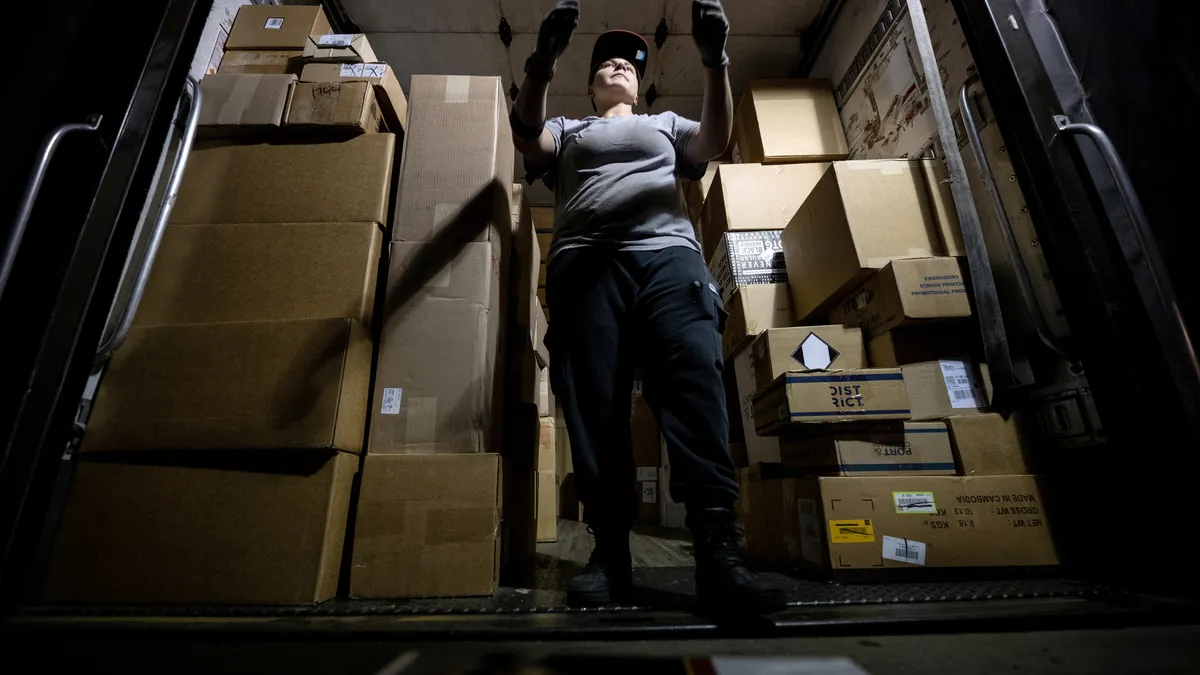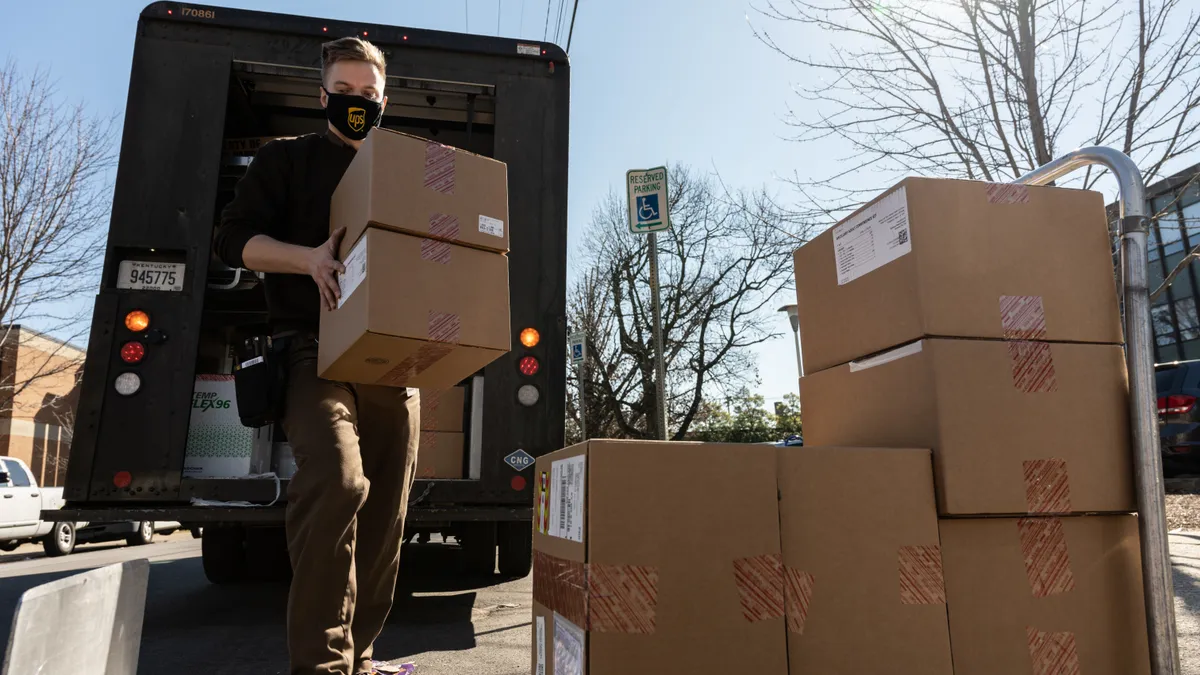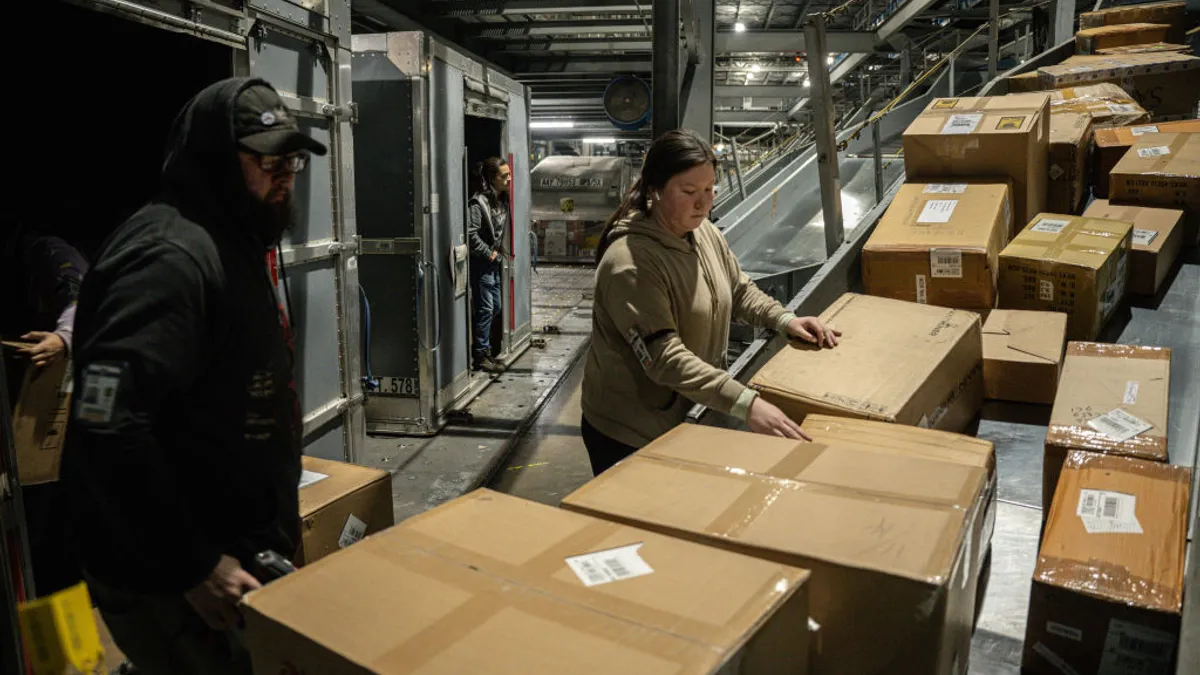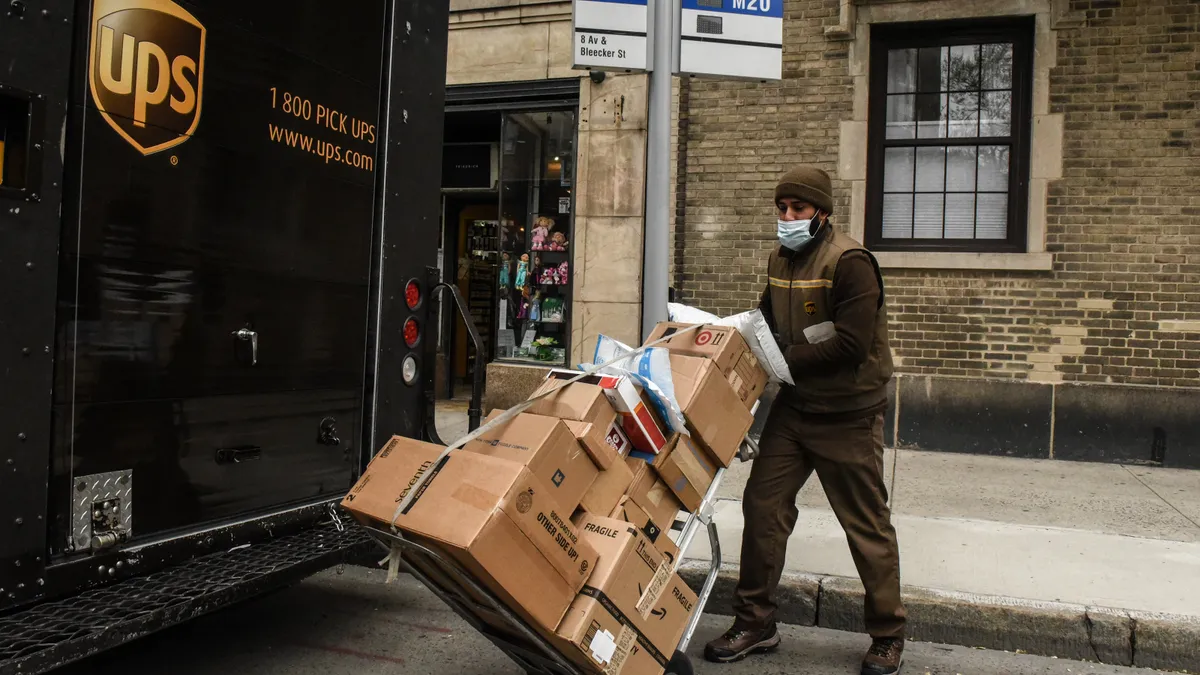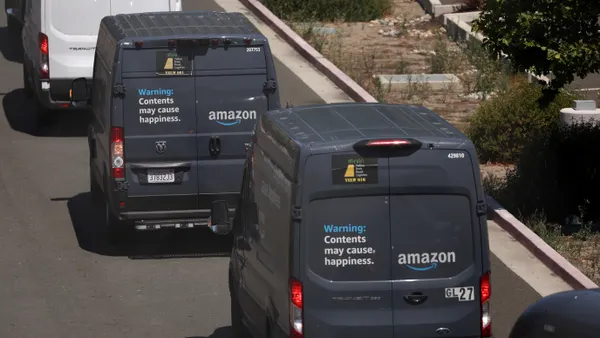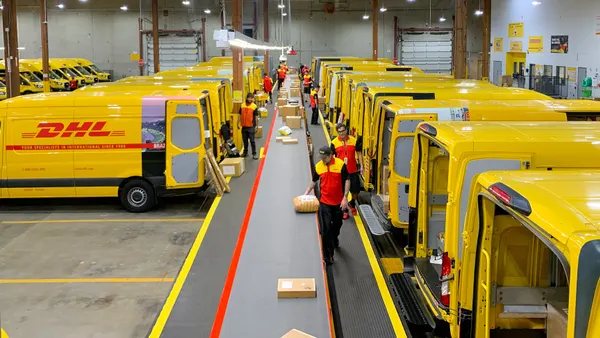UPS and the International Brotherhood of Teamsters have reached a tentative agreement on a new five-year national contract.
The Teamsters said in an announcement Tuesday that the deal “raises wages for all workers, creates more full-time jobs, and includes dozens of workplace protections and improvements.” Its negotiating committee unanimously endorsed the agreement.
In the new tentative agreement, both full-time and part-time employees will see their hourly pay increase by $2.75 in 2023, according to the Teamsters. Over the length of the five-year contract, their pay will jump by $7.50 per hour.
“UPS has put $30 billion in new money on the table as a direct result of these negotiations,” Teamsters General President Sean O’Brien said in a statement. “We’ve changed the game, battling it out day and night to make sure our members won an agreement that pays strong wages, rewards their labor, and doesn’t require a single concession.”
The tentative deal is a welcome development for the shippers relying on the roughly 330,000 Teamsters-represented UPS employees to deliver millions of packages every day. Concerns of a strike starting Aug. 1 escalated in recent weeks as the two sides struggled to reach an agreement on economic topics like pay and benefits.
“Together we reached a win-win-win agreement on the issues that are important to Teamsters leadership, our employees and to UPS and our customers,” said Carol Tomé, UPS CEO, in a statement. “This agreement continues to reward UPS’s full- and part-time employees with industry-leading pay and benefits while retaining the flexibility we need to stay competitive, serve our customers and keep our business strong.”
The handshake agreement is a major step toward UPS averting a work stoppage, but the bargaining process isn’t over yet.
Next, the union will present the agreement to UPS employees they represent for review and voting. Their membership is able to vote on the national master agreement and regional supplemental contracts that cover their employment, according to UPS. To be ratified and implemented, each agreement — from the national master contract deal to supplementals — requires a majority to vote “yes.”
Representatives of UPS Teamsters locals will meet on July 31 to review and recommend the agreement, according to the union. Voting among union members runs from Aug. 3 to Aug. 22.
Negotiations stalled, then restarted
The tentative agreement comes after the Teamsters began pushing UPS for more favorable terms on economic items in late June. O’Brien said a strike appeared “inevitable” and the union repeatedly called on the company to present its best and final offer.
While UPS’ June 30 offer didn’t meet all the Teamsters demands, there was enough movement on the company’s side for the union to reengage in negotiations.
The two sides made quick progress in talks shortly after that. They reached tentative agreements on three major economic topics on July 1, including the elimination of the “22.4” combination class of drivers. The union has said this separate classification created two unequal employee tiers.
But then, a significant roadblock emerged in differences over part-time employee wages. The Teamsters alleged UPS walked away from the bargaining table on the early morning of July 5, while the company said the union refused to negotiate further.
Negotiators returned to contract discussions on July 25, and they reached a deal on remaining topics, including part-time pay. The new deal, if ratified, will increase the average total wage for existing part-time workers by 48% over the next five years, according to the Teamsters.
The next step is for the tentative agreement to be ratified by union membership. Although Teamsters negotiators liked the deal enough to present it to the rank-and-file, contract ratification in general is “extremely difficult these days,” said Art Wheaton, director of labor studies at Cornell University’s School of Industrial and Labor Relations, in a recent interview. For example, pilots at UPS rival FedEx rejected a tentative contract on July 24, sending negotiators back to the bargaining table.
Health and safety risks endured during the pandemic's heyday and more recent inflationary pressures have union members calling for deals that reflect their sacrifices and the current economic environment, Wheaton said.
"You've seen the cost of living skyrocket for a lot of different people, and if the contract language doesn't give them a huge raise, they will say, 'Well, why did you agree to this? You need to give us more money,'" Wheaton said.
UPS will have trouble passing off higher labor costs to customers via shipping rate increases as delivery demand has waned, experts have told Supply Chain Dive. But Tommy Storch, a transportation procurement expert at Insight Sourcing Group, said in emailed remarks Tuesday that the agreement is poised to have a big impact on the company's pricing.
“Last year, UPS implemented a general rate increase of 6.9%, which was a full percentage point above the typical 4.9% to 5.9% increases," Storch said. "Considering the additional compensation for workers, we should anticipate a rise of at least 8% following this new contract, when factoring in accessorial and fuel increases as well."
Retail groups express relief over deal
Experts expected a strike would cause significant disruptions for a wide range of industries reliant on parcel carriers to make deliveries, given UPS' outsized presence in the space. The retail industry was seen as particularly vulnerable, especially as e-commerce demand has grown.
“News of a tentative UPS-Teamsters contract agreement is an enormous relief to retailers, who have been navigating the possibility of a strike and the associated uncertainty for weeks," the Retail Industry Leaders Association said in a statement. "With a work stoppage now taken out of the equation, retail supply chains can continue firing on all cylinders to deliver for consumers across the country."
National Retail Federation President and CEO Matthew Shay expressed a similar sentiment in his own statement. He said the timing of the tentative agreement is critical as the peak back-to-school shopping season kicks into gear.
"Retailers rely on stability within their supply chains, and this agreement will bring long-term stability, as well as assurance to the millions of businesses and employees who rely on smooth and efficient last-mile delivery," Shay said.



